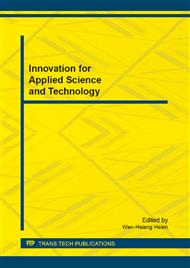p.2291
p.2296
p.2301
p.2305
p.2310
p.2315
p.2320
p.2325
p.2330
Robust Finite Time Controller Design for Second Order Underactuated Mechanical Systems
Abstract:
Stabilization and tracking control of nonlinear uncertain underactuated systems are always challenging problems because underacturated systems have fewer independent control actuators than degrees of freedom to be controlled. For a class of second order underactuated mechanical systems, a robust finite time control strategy is developed in this paper. The robust finite time controller is to drive the tracking error to be zero at the fixed final time. In fact, finite time convergence implies nonsmooth or non-Lipschitz continuous autonomous systems with nonuniqueness of solution. In order to prove the stability, we present a generalized Lyapunov stability proof for the second order underactuated mechanical system. By utilizing a Lyapunov stability theorem, we can achieve finite time tracking of desired reference signals for underactuated systems, which is subject to both external disturbances and system uncertainties. The proposed control scheme is demonstrated by actual experiments on a Furuta pendulum system. Based on the experiment results, the finite time convergence of system errors can be assured.
Info:
Periodical:
Pages:
2310-2314
Citation:
Online since:
January 2013
Authors:
Price:
Сopyright:
© 2013 Trans Tech Publications Ltd. All Rights Reserved
Share:
Citation:


